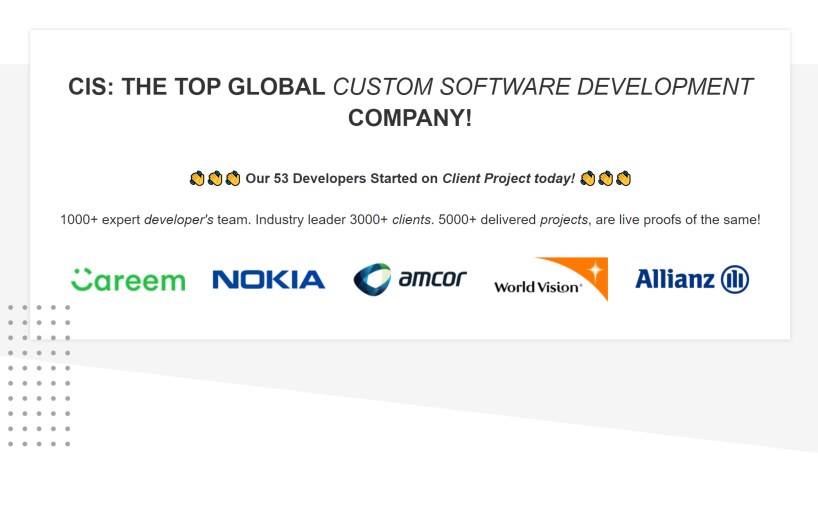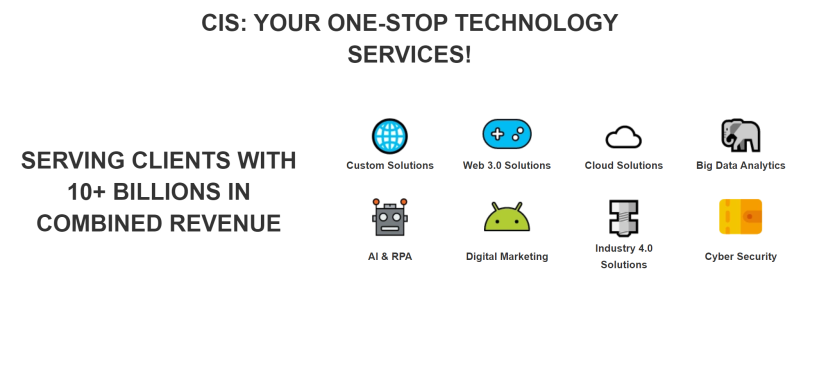Maximizing ROI: The Cost and Benefits of Adopting Sap On Azure for Your Business
- SAP on Azure - Detailed Analysis by Enterprise Solutions Experts



Why Mid-size Companies and Enterprises needs SAP On Azure:
SAP on Azure offers mid-size companies and enterprises the ability to leverage the scalability, security, and reliability of Microsoft Azure cloud services while taking advantage of SAP's industry-leading enterprise resource planning (ERP) solutions. With SAP on Azure, businesses can streamline their operations with integrated applications for financials, human resources, sales & distribution management, supply chain management, and more. Additionally, by leveraging Azure's advanced analytics capabilities such as machine learning and artificial intelligence (AI), customers can further optimize their business processes with predictive insights. This helps them make better decisions faster in order to remain competitive in today's digital economy.
Benefits of using SAP On Azure in Mid-size companies and Enterprises:
1. Reduced Cost:
SAP on Azure enables companies to reduce their total cost of ownership (TCO) by removing the need for costly hardware and software licenses. This can help mid-size companies and enterprises save money in the long run, as well as allowing them to focus more resources on other areas of their business.
2. Scalability:
With SAP on Azure, businesses have access to a highly scalable platform that allows them to quickly scale up or down based on their needs without having to invest in additional hardware or software infrastructure. This makes it easier for mid-size companies and enterprises to manage growth while keeping costs low.
3. Security & Compliance:
By leveraging Microsoft's enterprise-grade security features, businesses can ensure that their data is secure from potential threats such as cyberattacks and data breaches. Additionally, with its built-in compliance capabilities, organizations can rest assured that they are meeting industry standards when it comes to protecting sensitive customer information stored within the cloud environment provided by SAP on Azure .
4. Flexibility & Agility:
Businesses have greater flexibility when using SAP on Azure compared with traditional IT environments due to its ability to easily integrate with other applications and services hosted in the cloud environment. This helps enable faster time-to-market for new products and services while providing better agility when responding quickly changes in market conditions or customer demandsDetailed Features of SAP On Azure for Mid-size companies and Enterprises:
1. Scalability:
SAP on Azure provides the ability to quickly scale up and down as needed, allowing mid-size companies and enterprises to easily manage their workloads without needing additional hardware or software.
2. Security:
With built-in security features such as encryption, authentication, and identity management, mid-size companies and enterprises can rest assured that their data is safe in the cloud.
3. Cost Savings:
By taking advantage of Azure's pay-as-you-go model for compute resources, mid-size companies and enterprises can save money by only paying for what they use rather than investing in expensive hardware or software licenses upfront.
4. High Availability:
SAP on Azure offers high availability with automated failover capabilities so businesses don't have to worry about downtime during maintenance windows or unexpected outages.
5. Automation & Orchestration:
Mid-size companies and enterprises can take advantage of automation tools such as PowerShell scripts or ARM templates to automate deployment tasks like setting up virtual machines (VMs) or configuring networks quickly across multiple regions within a single click of a button while also enabling them to orchestrate complex multi VM deployments from one place using Resource Manager Templates (RMT).Who are the Users of SAP On Azure:
Customers using SAP on Azure include global brands such as Coca-Cola, Audi, ABB, BASF, Siemens, and many more.
How to ensure Data Security and Compliance with SAP On Azure:
1. Establish strong authentication and authorization protocols:
Implement multi-factor authentication (MFA) for all users, including privileged access accounts. Additionally, ensure that only authorized personnel have access to sensitive data and applications on SAP on Azure by implementing role-based access control (RBAC).
2. Encrypt data in transit and at rest:
Ensure that your data is encrypted while in transit between the user's device and the cloud environment with secure transport layer security (TLS), as well as when it is stored within the cloud environment using encryption keys generated by you or a third party vendor.
3. Use network segmentation:
Segmenting your network into smaller subnets can help limit lateral movement of malicious actors if they gain unauthorized access to one part of your system. This will also help protect against unauthorized traffic from outside sources attempting to breach your system through its public facing components such as web servers or databases hosted in Azure.
4. Monitor logs regularly:
Regularly monitor audit logs for any suspicious activity, such as failed login attempts or unexpected changes to permissions or configuration settings, so that you can quickly respond if an attack occurs before any damage has been done to your system or data integrity compromised.
5. Utilize robust backup strategies:
Back up all critical data stored on SAP on Azure systems regularly so that you can quickly restore lost information should something go wrong during an attack attempt or due to other unforeseen circumstances like hardware failure etcHow SAP On Azure can increase organization Productivity, Agility, and Profitability:
SAP on Azure can increase an organization's productivity, agility, and profitability by providing a comprehensive cloud platform that offers scalability, flexibility, cost savings, and increased security. With SAP on Azure, organizations have access to the latest versions of popular applications such as SAP S/4HANA and the ability to quickly spin up new services without having to invest in additional hardware or software. This allows businesses to focus more resources on innovation instead of maintenance. Additionally, with built-in analytics capabilities for data insights and machine learning models for predictive analysis, businesses can better understand their customers' needs and make smarter decisions faster. Finally, because SAP solutions are hosted in the cloud they offer greater reliability than traditional systems which reduces downtime costs associated with IT outages.
How to Measure KPIs and increase Benefits of implementing SAP On Azure in Mid-size companies and Enterprises:
1. Define KPIs:
The first step in measuring the benefits of implementing SAP on Azure is to define key performance indicators (KPIs) that will be used to measure success. These should include metrics such as cost savings, time savings, increased efficiency and scalability, improved security, and customer satisfaction.
2. Collect Data:
Once you've identified the KPIs you want to track, it's important to collect data from your customers or internal teams about their experience with the new system and any changes they have seen since its implementation. This could include surveys or interviews with users as well as feedback from customer service representatives who interact with them on a daily basis.
3. Analyze Results:
After collecting data about how customers are using SAP on Azure, analyze this information to identify areas where improvements can be made or areas that need further optimization for better results. This analysis should also help determine whether the move has been successful overall and if there are any additional benefits that can be gained by continuing use of the system in mid-size companies and enterprises.
4. Implement Changes:
Based on your analysis of customer feedback and usage data, make necessary adjustments or add features to improve user experience when using SAP on Azure in mid-size companies and enterprises so they can get even more out of it than before implementation began..
5 Measure Impact:
Finally, measure the impact these changes have had by tracking KPIs over time such as cost savings due to automation or scalability improvements resulting from cloud hosting services like Microsoft Azure . Compare these results against pre-implementation numbers for a full picture of what kind of value has been added through deploying SAP solutions via cloud technologyHow SAP On Azure can increase Employee Morale in your organization:
SAP on Azure can help increase organization employee morale by making it easier for employees to access and use the software they need to do their jobs. This can reduce frustration with slow loading times, compatibility issues, or system crashes, which often occur when using on-premise solutions. Additionally, SAP on Azure provides a secure platform that is always up-to-date with the latest security protocols and features. By giving employees access to reliable tools that are easy to use and secure from cyber threats, organizations can create an environment of trust and confidence among its workforce. This in turn increases morale as employees feel more supported in their roles.
How SAP On Azure is Better than its Competitors:
SAP on Azure offers a number of advantages over its competitors, including:
• High availability and scalability - SAP on Azure is designed to provide high availability for mission-critical applications, as well as the ability to scale up or down quickly and easily. This helps organizations save time and money by not having to worry about managing their own infrastructure.
• Security - With built-in security measures such as encryption, authentication, authorization, auditing and monitoring capabilities, SAP on Azure provides an extra layer of protection for sensitive data.
• Cost savings - Organizations can reduce costs associated with hardware purchases and maintenance when using cloud technology like SAP on Azure. Additionally, they benefit from pay-as-you-go pricing models that allow them to only pay for what they use.
• Easy integration - It's easy to integrate existing systems with new ones running in the cloud via APIs or other methods provided by Microsoft. This allows organizations to take advantage of modern technologies without having to start from scratch every time they want something new or updated.
Cost to Develop & Implemention of SAP On Azure:
The cost of developing and deploying SAP on Azure will vary depending on the size and complexity of the project. Generally speaking, it can range from a few thousand dollars to hundreds of thousands of dollars. The exact cost will depend on factors such as the number of users, data storage requirements, integration needs, customizations required, and other services needed for successful deployment.
Why outsourcing implementation services for SAP On Azure is better for Mid-size companies and Enterprises:
Outsourcing implementation services for "SAP on Azure" is beneficial for mid-size companies and enterprises because it allows them to take advantage of the scalability, cost savings, and agility that cloud computing provides. With a managed service provider (MSP) managing the setup and maintenance of their SAP environment, they can focus on their core business operations without worrying about IT infrastructure. Additionally, MSPs are experts in configuring SAP systems to run optimally in an Azure environment so companies can get up and running quickly with minimal disruption to their existing processes. Finally, outsourcing these services reduces operational costs by eliminating the need to hire additional personnel or purchase hardware/software licenses.


